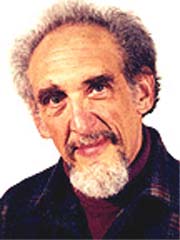2006.07.23: July 23, 2006: Headlines: COS - Colombia: Hollywood: Movies: Engineering: Sound: Awards: Film West 31: Colombia RPCV Berger has been working with sound for 30 years and has won four Oscars
Peace Corps Online:
Directory:
Colombia:
Peace Corps Colombia :
The Peace Corps in Colombia:
2006.07.23: July 23, 2006: Headlines: COS - Colombia: Hollywood: Movies: Engineering: Sound: Awards: Film West 31: Colombia RPCV Berger has been working with sound for 30 years and has won four Oscars
Colombia RPCV Berger has been working with sound for 30 years and has won four Oscars

Berger has been working with sound for the best part of 30 years. He has won four Oscars; for Apocalypse Now, The Right Stuff, Amedeus and most recently The English Patient, "I've thanked my wife and family four times!", he says dryly. His Oscar for Apocolypse Now seems particularly deserved; he recounts how whole sound process lasted nearly two years and he reckons they recorded between ten and fifteen thousand individual effects.
Colombia RPCV Berger has been working with sound for 30 years and has won four Oscars
SOUND AND IMAGE
Four time Oscar winning Sound Designer, Mark Berger talks to Pat Collins
To sit in on a sound mix might not seem that exciting to the uninitiated, as each scene is played again and again, but spend an hour with Mark Berger and you'll never see sound in the same light again. As he sits at the mixing desk in the Dubbing Studio at Ardmore Sound, a luddite's nightmare of flashing buttons at his fingertips he has the air of a wise professor who has been though as many revolutions, technological and otherwise to last a lifetime. The director and editor of Irvine Welshe's Acid House Trilogy are working with Mark to put the final sound 'polish' to the gritty violent and bleak Scottish drama. It contains as much violence and swear words as you are ever likely to see in one short intense drama. What with the thick Scottish brogue I'm not sure if Mark or myself even caught half the swear words. But Mark has heard it all before. Afterall, he did work on Apocalypse Now.
Berger has been working with sound for the best part of 30 years. He has won four Oscars; for Apocalypse Now, The Right Stuff, Amedeus and most recently The English Patient, "I've thanked my wife and family four times!", he says dryly. His Oscar for Apocolypse Now seems particularly deserved; he recounts how whole sound process lasted nearly two years and he reckons they recorded between ten and fifteen thousand individual effects. "There was a time when I did everything. We would record the sounds on location. For Apocalypse Now nothing that was recorded on location could be used because they were recorded for dialogue. There was no Vietnam War sounds in the Sound Libraries so we had to go on manoeuvres with the army. It was especially important when they were using live ammunition because some guns sound very different when they are shooting blanks than shooting live ammunition. We got every kind of conceivable weapon that was fired in Vietnam. We recorded it all."
Attention to detail seems to be his trademark. For One flew Over the Cuckoo's Nest the sound team went to the Napa State Mental Hospital and recorded the patients speaking in tongues, yelling, moaning and just walking around. "When you're under the influence of a lot of very heavy tranquillisers there is a particular sound of feet shuffling, wearing soft slippers and constantly walking around in circles. Then we recorded people banging their head against walls. All of those sounds 'Cuckoo's Nest' are actual real sounds, of real people on the wards."
Mark never actually studied sound and sort of fell into it accidentally. He studied experimental psychology and for a while was even a brain surgeon. As a hobby he produced radio documentaries in College. After graduating in 1965 he went into the peace corps and worked in educational television in Colombia. Then he got a job as a sound Recordist on an educational film for a civil rights organisation. By this time he was well and truly hooked and continued to work in documentaries. These were glory days of documentary in America, Cinema Verité was in vogue, Pennebacker, and Leacock the high kings. After his years working on documentaries his first feature was auspiciously enough Godfather II. "At the time we made up a title called Sound Montage Associates which s a very pretentious way of saying we were sound editors and mixers and we basically did everything."
At that time, before the technological revolution, the whole approach to sound was very different to to-day. "You had to make a lot of decisions very early on, because all the different effects were mixed together in a way that couldn't be separated later. So I learned very early on to decide how I wanted something and having made that decision to stick with it and to anticipate how something was going to be used. You learn how to visualise well visualise isn't the right word cause you're not using your eyes but to sonorise, to imagine how the entire sound track is going to be like before it's done. Much as a painter will imagine how the finished painting is going to look before how he even starts. This is actually an important point because it bears on how technology is used to-day. Because we couldn't postpone all our decisions until the last moment we didn't we learned how to integrate everything from the time we started." Though Berger uses all the modern technology at his disposal he believes that sound is conceptual more that technical. "The sound doesn't come out of the machines the sound comes out of what you're imagining."
It's probably true to say that for many writers and film-makers sound is always an afterthought, something that, naturally enough, Berger sees as a major flaw. "You have to remember that it is a visual medium but sound in the sense of dialogue and music has always been an important component. For low-budget films you don't have to have a lot of money and forty-eight sound tracks and computerised editing and a giant mixing board to get the right sound. The ideal sound for a movie in any scene is the one sound that will give an emotional context to the scene. It could be very sparse but it could be very evocative and very emotionally moving. It doesn't have to be complicated, it just has to be right. And that is independent of budget, if you think about it ahead of time. If the director and the sound editor can be involved at a very early stage then it can be made easier."
Links to Related Topics (Tags):
Headlines: July, 2006; COS - Colombia; Hollywood; Movies; Engineering; Awards
When this story was posted in November 2006, this was on the front page of PCOL:





Peace Corps Online The Independent News Forum serving Returned Peace Corps Volunteers
 | Ron Tschetter in Morocco and Jordan
On his first official trip since being confirmed as Peace Corps Director, Ron Tschetter (shown at left with PCV Tia Tucker) is on a ten day trip to Morocco and Jordan. Traveling with his wife (Both are RPCVs.), Tschetter met with volunteers in Morocco working in environment, youth development, health, and small business development. He began his trip to Jordan by meeting with His Majesty King Abdullah II and Her Majesty Queen Rania Al Abdullah and discussed expanding the program there in the near future. |
 | Chris Dodd's Vision for the Peace Corps
Senator Chris Dodd (RPCV Dominican Republic) spoke at the ceremony for this year's Shriver Award and elaborated on issues he raised at Ron Tschetter's hearings. Dodd plans to introduce legislation that may include: setting aside a portion of Peace Corps' budget as seed money for demonstration projects and third goal activities (after adjusting the annual budget upward to accommodate the added expense), more volunteer input into Peace Corps operations, removing medical, healthcare and tax impediments that discourage older volunteers, providing more transparency in the medical screening and appeals process, a more comprehensive health safety net for recently-returned volunteers, and authorizing volunteers to accept, under certain circumstances, private donations to support their development projects. He plans to circulate draft legislation for review to members of the Peace Corps community and welcomes RPCV comments. |
 | He served with honor
One year ago, Staff Sgt. Robert J. Paul (RPCV Kenya) carried on an ongoing dialog on this website on the military and the peace corps and his role as a member of a Civil Affairs Team in Iraq and Afghanistan. We have just received a report that Sargeant Paul has been killed by a car bomb in Kabul. Words cannot express our feeling of loss for this tremendous injury to the entire RPCV community. Most of us didn't know him personally but we knew him from his words. Our thoughts go out to his family and friends. He was one of ours and he served with honor. |
 | Peace Corps' Screening and Medical Clearance
The purpose of Peace Corps' screening and medical clearance process is to ensure safe accommodation for applicants and minimize undue risk exposure for volunteers to allow PCVS to complete their service without compromising their entry health status. To further these goals, PCOL has obtained a copy of the Peace Corps Screening Guidelines Manual through the Freedom of Information Act (FOIA) and has posted it in the "Peace Corps Library." Applicants and Medical Professionals (especially those who have already served as volunteers) are urged to review the guidelines and leave their comments and suggestions. Then read the story of one RPCV's journey through medical screening and his suggestions for changes to the process. |
 | The Peace Corps is "fashionable" again
The LA Times says that "the Peace Corps is booming again and "It's hard to know exactly what's behind the resurgence." PCOL Comment: Since the founding of the Peace Corps 45 years ago, Americans have answered Kennedy's call: "Ask not what your country can do for you--ask what you can do for your country. My fellow citizens of the world: ask not what America will do for you, but what together we can do for the freedom of man." Over 182,000 have served. Another 200,000 have applied and been unable to serve because of lack of Congressional funding. The Peace Corps has never gone out of fashion. It's Congress that hasn't been keeping pace. |
 | PCOL readership increases 100%
Monthly readership on "Peace Corps Online" has increased in the past twelve months to 350,000 visitors - over eleven thousand every day - a 100% increase since this time last year. Thanks again, RPCVs and Friends of the Peace Corps, for making PCOL your source of information for the Peace Corps community. And thanks for supporting the Peace Corps Library and History of the Peace Corps. Stay tuned, the best is yet to come. |
 | History of the Peace Corps
PCOL is proud to announce that Phase One of the "History of the Peace Corps" is now available online. This installment includes over 5,000 pages of primary source documents from the archives of the Peace Corps including every issue of "Peace Corps News," "Peace Corps Times," "Peace Corps Volunteer," "Action Update," and every annual report of the Peace Corps to Congress since 1961. "Ask Not" is an ongoing project. Read how you can help. |
Read the stories and leave your comments.

Some postings on Peace Corps Online are provided to the individual members of this group without permission of the copyright owner for the non-profit purposes of criticism, comment, education, scholarship, and research under the "Fair Use" provisions of U.S. Government copyright laws and they may not be distributed further without permission of the copyright owner. Peace Corps Online does not vouch for the accuracy of the content of the postings, which is the sole responsibility of the copyright holder.
Story Source: Film West 31
This story has been posted in the following forums: : Headlines; COS - Colombia; Hollywood; Movies; Engineering; Sound; Awards
PCOL33738
60


















